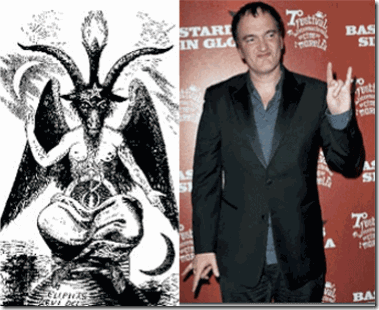

Tarantino was talking film and his own work, and little was said that could be seen as refutation of my assertions here). (I have had the opportunity to be in a room where Mr. Tarantio's films, however, consistently have as a purpose, typically front and center, the presentation of the self-anointed majesty of Mr. One key difference that is the irreparable fork in the road for me is that John Ford never saw himself or his work as part of some sacred, Mount Olympus-set pantheon of filmic art, and as such, his work product routinely worked to glorify the characters and story therein, rather than the auteur. Tarantino's comments on the black and white photography of early-Ford is but one, albeit glaring, example as to why. (I am willing to call Bogdanovich-adjacent references a draw.) Mr. Quentin Tarantino, for all his commercial success and occasional flashes of brilliance and auteurism (confined mostly to his earliest films), has no standing being mentioned in the same discussion as John Ford. I am sorry (and I know the sacrilegious ground on which I tread), but no. Ben Johnson was among these he barely spoke 5 lines in most Ford films, but he was cast by Bogdanovich in The Last Picture Show and suddenly had tons to say. He wanted actual cowboys, not actors pretending to be them. Another way in which he couldn't be more different from great-great-grandpa Ford who saw John Wayne in Red River after constantly casting him in his own films and finally said, "I didn't know that son of a bitch could act."įord thought about as little of his performers as one could. His filmmaking eye always seems to drift to cast. Tarantino suggests alternate casting for the would-be film. But they were all old and passed on the project, and it ended up becoming a prize-winning novel, and an 80s miniseries event. Bogdanovich wanted a trio of Ford's greatest leading men: John Wayne, James Stewart, and Henry Fonda. Notably, McMurtry was writing a script for Bogdanovich about a cattle drive. Tarantino's take on the near-miss of Bogdanovich's epic western Lonesome Dove, written by McMurtry, was mainly geared towards the casting. It's a powerful kind of time-travel, an immediate and haunting version of nostalgia. Like we are seeing it all as their faded memory. The characters long for the past they are currently living. McMurtry's work, and The Last Picture Show, in particular, mourn the present. The high school dance/event is one loaded with a somber melancholy. Aren't the long empty black and white eye-level compositions in The Last Picture Show reminiscent of the ones from Ford's films?Ĭommunity ritual in the Ford sense comes into play throughout the film, maybe in a revisionist Western sad way, which is distinct to the tone of McMurtry's work.

Maybe the film is actually more similar to Ford's than Tarantino is suggesting.

If anything, The Last Picture Show is the kind of older style of filmmaking where the artists aren't injecting themselves or their sensibility into the work. Some characters mock others for being bad at football, but the artists don't seem to be commenting on the characters caring about it. He has distant compassion for his characters, watching them struggle with issues large and small. There isn't any poking fun at the characters in the work of novelist Larry McMurtry.


 0 kommentar(er)
0 kommentar(er)
